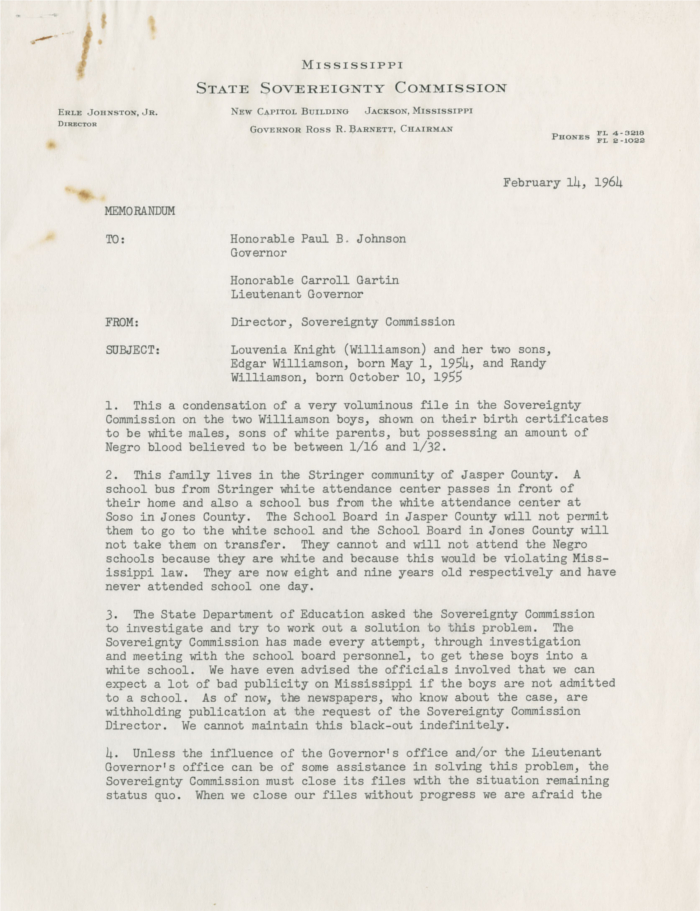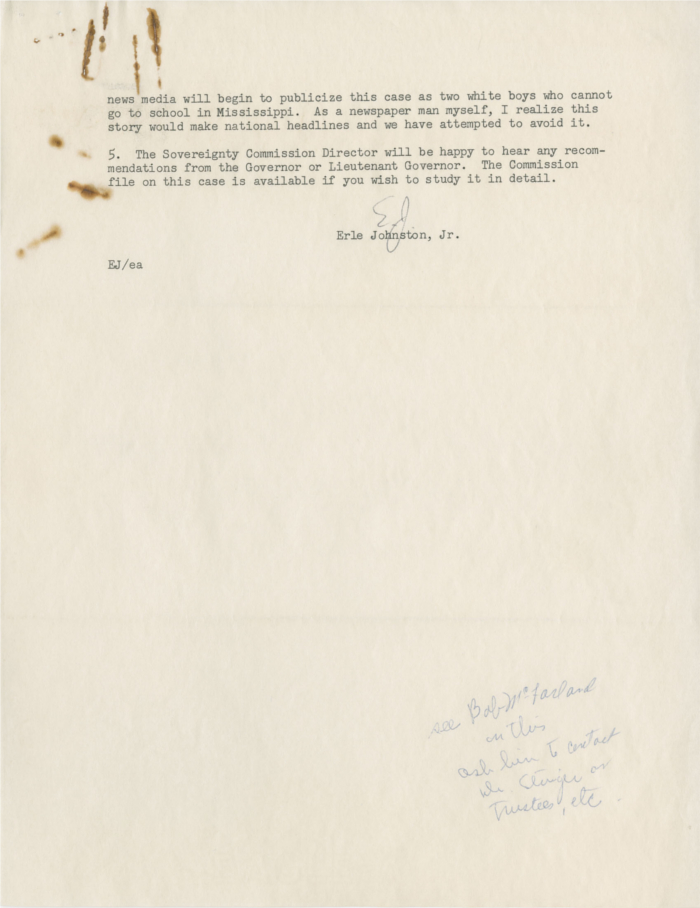Letter to Governor Paul B. Johnson Jr. and Lieutenant Governor Carroll GartinPosted in Law, Letters, Media Archive, Mississippi, United States on 2013-07-07 19:42Z by Steven |
Letter to Governor Paul B. Johnson Jr. and Lieutenant Governor Carroll Gartin
University of Southern Mississippi Libraries
Special Collections: Exhibits and Events
1964-02-14
Mississippi State Sovereignty Commission
New Capitol Building
Jackson, Mississippi
Erle Johnston, Jr., Director
Governor Ross R. Barnett, Chairman
Phones: FL 4-3218; FL 2-1022
MEMORANDUM
TO: Honorable Paul B. Johnson, Governor; Honorable Carroll Gartin, Lieutenant Governor
FROM: Director, Sovereignty Commission
SUBJECT: Louvenia Knight (Williamson) and her two sons, Edgar Williamson, born May 1, 1954, and Randy Williamson, born October 10, 1955
- This a condensation of a very voluminous file in the Sovereignty Commission on the two Williamson boys, shown on their birth certificates to be white males, sons of white parents, but possessing an amount of Negro blood believed to be between 1/16 and 1/32.
- This family lives in the Stringer community of Jasper County. A school bus from Stringer white attendance center passes in front of their home and also a school bus from the white attendance center at Soso in Jones County. The School Board in Jasper County will not permit them to go to the white school and the School Board in Jones County will not take them on transfer. They cannot and will not attend the Negro schools because they are white and because this would be violating Mississippi law. They are now eight and nine years old respectively and have never attended school one day.
- The State Department of Education asked the Sovereignty Commission to investigate and try to work out a solution to this problem. The Sovereignty Commission has made every attempt, through investigation and meeting with the school board personnel, to get these boys into a white school. We have even advised the officials involved that we can expect a lot of bad publicity on Mississippi if the boys are not admitted to a school. As of now, the newspapers, who know about the case, are withholding publication at the request of the Sovereignty Commission Director. We cannot maintain this black-out indefinitely.
- Unless the influence of the Governor’s office and/or the Lieutenant Governor’s office can be of some assistance in solving this problem, the Sovereignty Commission must close its files with the situation remaining status quo. When we close our files without progress we are afraid the news media will begin to publicize this case as two white boys who cannot go to school in Mississippi. As a newspaper man myself, I realize this story would make national headlines and we hare attempted to avoid it.
- The Sovereignty Commission Director will be happy to hear any recommendations from the Governor or Lieutenant Governor. The Commission file on this case is available if you wish to study it in detail.
Erle Johnston, Jr.
EJ/ea
View the letter here.


